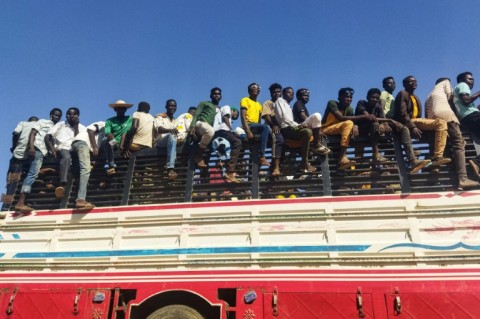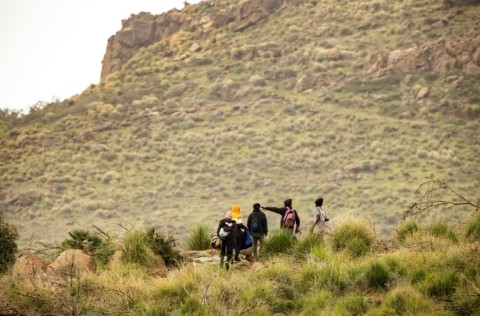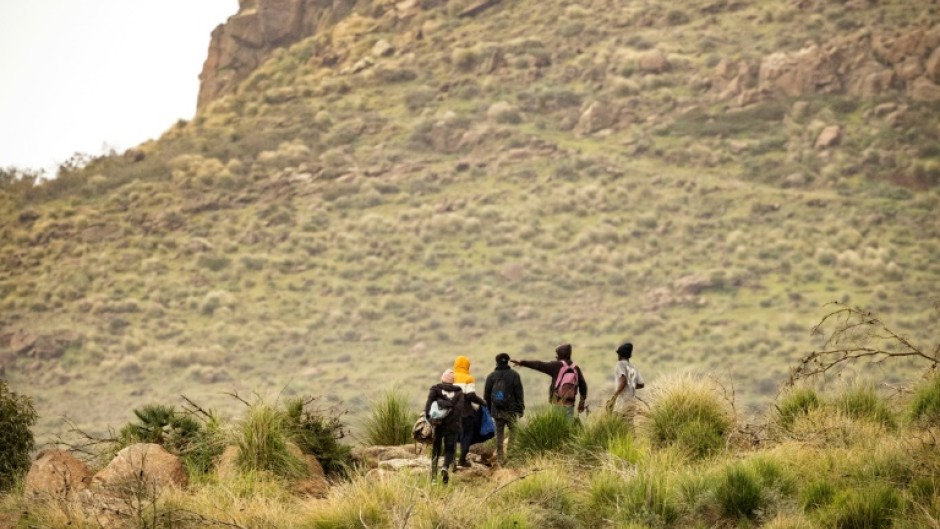THE HAGUE - The past 12 months marked a "formidable" year for suppression of human rights, with world leaders ignoring violations in Sudan and Gaza, and against marginalized groups like the Uighurs, a monitor said Thursday.
READ: Morocco elected as 2024 Human Rights Council president
In its world report for 2024 Human Rights Watch singled out "tremendous suffering" caused by the Israel-Hamas war, and the conflicts in Ukraine, Myanmar, Ethiopia and the Sahel region of Africa.
The bloodiest ever Gaza war has raged since the Hamas attacks against Israel on October 7.
"Israel's government responded by cutting water and electricity to Gaza's 2.3 million civilians and blocking the entry of all but a trickle of fuel, food, and humanitarian aid -- a form of collective punishment that is a war crime," the report said.
The war has killed more than 23,000 people in the besieged Palestinian territory, according to the Hamas-run health ministry.
It also pointed to damage done by climate change and economic inequality.
"The year 2023 was the hottest since global records began in 1880 and the onslaught of wildfires, drought, and storms wreaked havoc on communities from Bangladesh to Libya to Canada," it said.
"The international system that we rely on to protect human rights is under threat as world leaders look the other way when universal principles of human rights are violated," said the New York-based rights watchdog's chief Tirana Hassan.
"Every time a country overlooks these universal and globally accepted principles, someone pays a price, and that price is sometimes peoples' lives."
The report gave the example of what it said was a double standard among those governments, mostly Western, which strongly condemned the Hamas attacks on Israel of October 7, but subsequently held back in their criticism of Israel's war against Hamas.
"Many of the governments that condemned Hamas' war crimes have been reserved in responding to those by the Israeli government," the report said.
"These governments' unwillingness to call out Israeli government abuses follows from the refusal by the US and most European Union member countries to urge an end to the Israeli government's 16-year unlawful closure of Gaza and to recognize the ongoing crimes against humanity of apartheid and persecution against Palestinians."
- 'Prioritize accountability' -
The report said that as well as being "a formidable year" for human rights suppression and wartime atrocities, the past 12 months had seen significant "selective government outrage and transactional diplomacy that carried profound costs for the rights of those not in on the deal."

"Governments that could play a role in helping to improve human rights frequently adopt double standards in applying the human rights framework, which chips away at trust in the institutions responsible for enforcing and protecting rights," the report said.
The report highlighted the differing responses to the human rights situation in Sudan compared to Ukraine.
"Calls to prioritize accountability at the UN Human Rights Council following renewed violence in Sudan were met with strong resistance from Arab states and largely rebuffed by African governments," the report said.
"Western governments were initially reluctant to push for an accountability mechanism in Sudan, unwilling to commit the resources or effort that they had devoted to a similar body for Ukraine immediately after Russia's full-scale invasion in 2022."

Human Rights Watch also condemned the "massive violations" of civilian rights in Sudan by rival generals Abdel Fattah al-Burhan and Mohamed Hamdan Daglo, criticizing impunity leading to "repeated cycles of violence."
The watchdog also pointed out the lack of condemnation for "intensifying repression" in China -- particularly in Xinjiang and Tibet.
The report also calls out the European Union for its controversial policies to contain migration into the bloc.
"The EU's top foreign policy priority in relations with neighbors to the south remained containing migrants' departures toward Europe at any cost, persevering in a failed approach that has exposed the erosion of the bloc's human rights commitments," it said.
Hassan told AFP "when Western States and members of the EU turn a blind eye to human rights abuses... that is nothing short of hypocrisy."
Hassan said there was still a will to protect rights, referring in particular to the arrest warrant issued by the International Criminal Court against Russian President Vladimir Putin.
"The only thing that we're lacking is the commitment, the consistency and the political will of the states that make up that system," she said.
By Amélie Bottollier-depois

